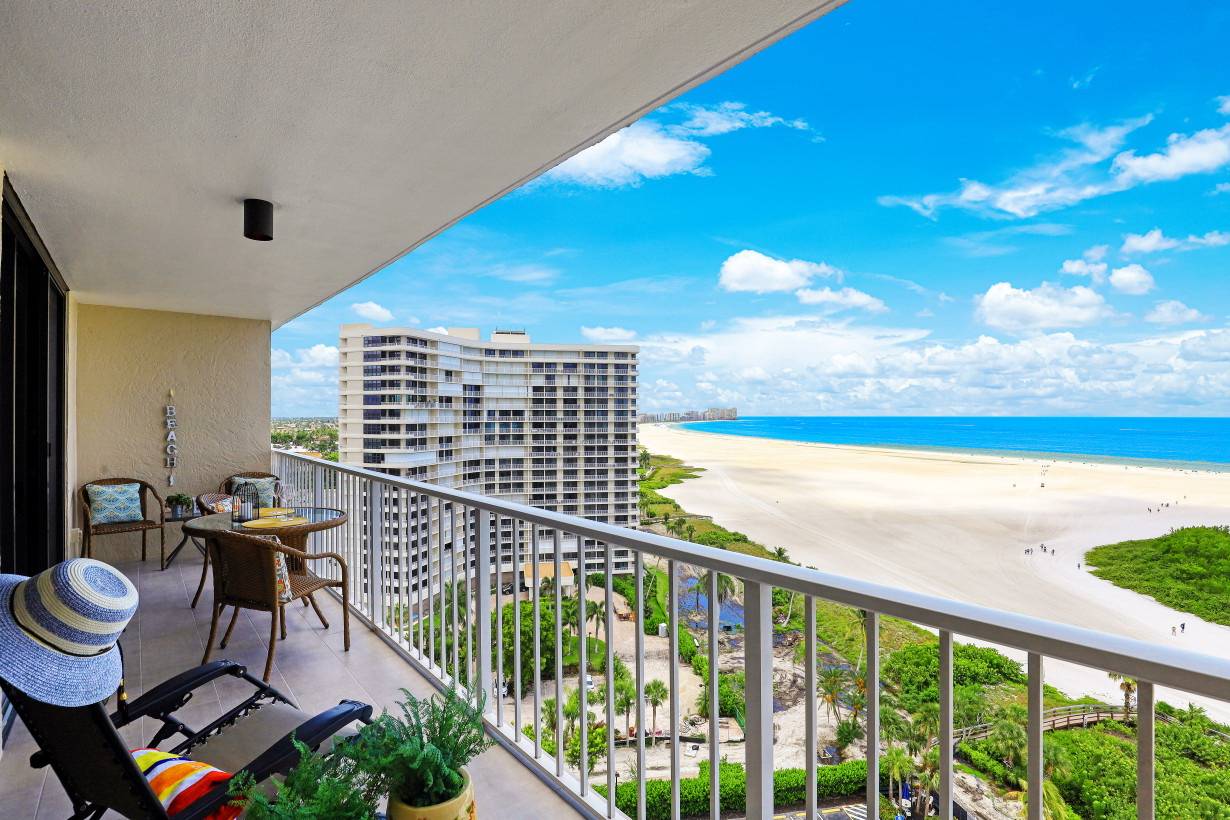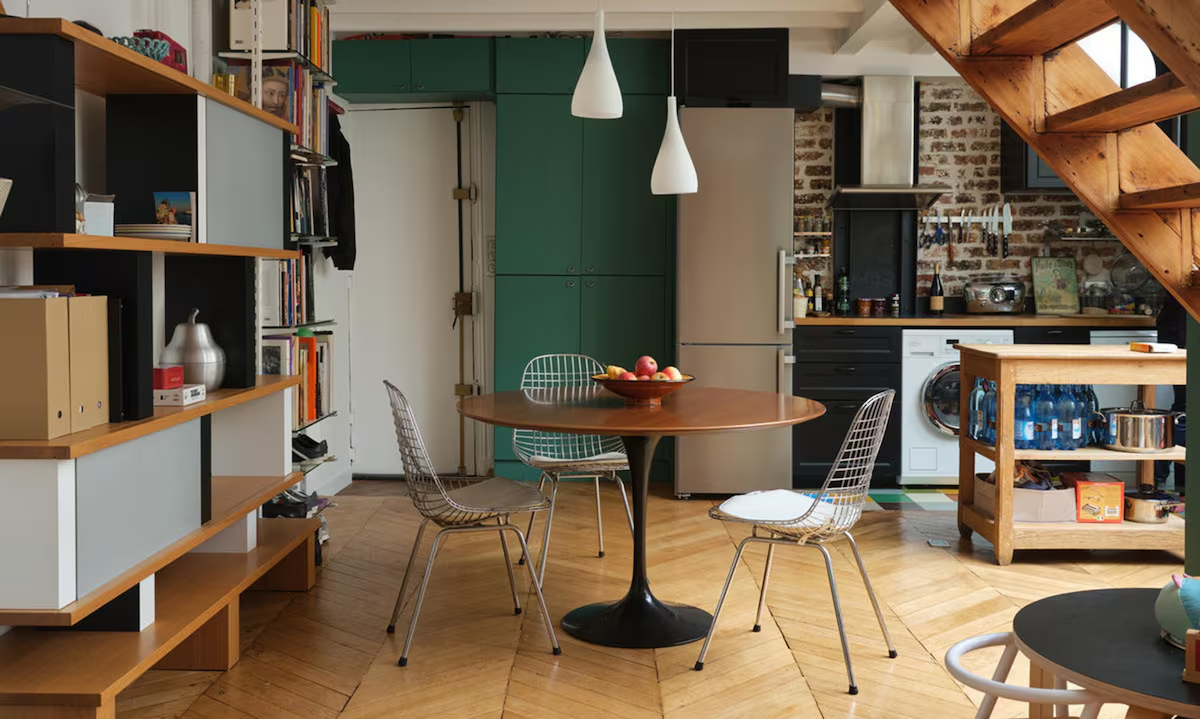Contents
- 1 1. Understanding the Montreal Rental Market: An Overview
- 2 2. Determining Your Budget: Setting Realistic Expectations
- 3 3. Choosing the Right Neighborhood: Exploring Montreal’s Best Areas
- 4 4. Assessing Your Needs: Size, Amenities, and More
- 5 5. Conducting a Thorough Search: Online Platforms and Real Estate Agencies
- 6 6. The Application Process: What to Expect
- 7 7. Negotiating Rental Terms: Tips for a Successful Outcome
- 8 8. Understanding Tenant Rights and Responsibilities
- 9 9. Moving In: Checklist and Tips for a Smooth Transition
- 10 10. Embracing Montreal’s Condo Lifestyle: Exploring the City’s Offerings
Welcome to our comprehensive guide on finding the perfect condos for rent in Montreal. Whether you’re a student, young professional, or simply looking for a new place to call home in this vibrant city, we’ve got you covered. Montreal offers a diverse range of rental options, from cozy studios to spacious penthouses, all in different neighborhoods with their own unique charm. In this article, we’ll explore the top considerations when searching for a condo, provide insights on the rental market, and highlight some of the best neighborhoods to consider. Get ready to embark on your journey to finding that ideal Montreal condo for rent!
1. Understanding the Montreal Rental Market: An Overview
When searching for condos for rent in Montreal, it’s essential to have a solid understanding of the city’s rental market. Currently, Montreal’s rental market is experiencing steady growth, with a diverse range of options available to prospective tenants.
The average rental prices in Montreal vary depending on factors such as location, size, and amenities. In general, the rental rates tend to be more affordable compared to other major Canadian cities like Toronto or Vancouver.
It’s important to note that Montreal has a relatively high vacancy rate, which means there is a good supply of condos for rent. This can work in your favor as a tenant, providing you with more options and potentially room for negotiation.
Rental Market Influencers
Several factors influence the dynamics of Montreal’s rental market. One of the key factors is the city’s growing population, which has resulted in increased demand for housing. The influx of international students and immigrants, as well as the city’s reputation as a cultural and economic hub, contribute to this growth.
Another significant influencer is the development of new condo projects across the city. Montreal has experienced a surge in construction activity, leading to a rise in the supply of condos available for rent. This influx of new units has helped stabilize rental prices and increase overall competition among landlords.
Key Considerations for Renters
As a renter, it’s crucial to consider certain factors when navigating Montreal’s rental market. Location plays a vital role, as different neighborhoods offer distinct advantages and amenities. Factors such as proximity to public transportation, schools, parks, and employment opportunities should be taken into account based on your specific needs and lifestyle.
Additionally, determining your budget is essential to ensure you can comfortably afford the monthly rent and associated expenses. It’s recommended that you allocate no more than 30% of your monthly income towards housing costs, including rent, utilities, and maintenance fees.
Understanding the rental market in Montreal is the first step to finding the ideal condo for rent. With an overview of rental prices, vacancy rates, and key influencers, you can approach your search with confidence and make informed decisions throughout the process.
2. Determining Your Budget: Setting Realistic Expectations
Before diving into your search for a condo for rent in Montreal, it’s crucial to establish a realistic budget. Setting a budget will help you narrow down your options and ensure you’re only considering properties within your financial means.
When determining your budget, it’s important to consider not only the monthly rent but also additional expenses such as utilities, parking fees, and maintenance costs. These additional expenses can significantly impact your overall affordability.
Calculating Your Budget
Start by assessing your monthly income and then subtracting your fixed expenses, such as taxes, insurance, and any existing debt payments. The remaining amount will give you an idea of how much you can allocate towards housing costs.
Experts recommend that you spend no more than 30% of your monthly income on housing. This includes rent, as well as utilities such as electricity, water, and internet. By adhering to this guideline, you can ensure that your housing expenses are manageable and leave room for other financial priorities.
Considering Additional Expenses
It’s essential to factor in additional expenses that may come with renting a condo in Montreal. Some buildings charge monthly maintenance fees, which cover shared amenities, building maintenance, and sometimes even utilities.
If you own a car, you’ll need to consider parking costs. Some condos offer parking spaces at an additional fee, while others may not have any on-site parking options available. Alternatively, you may need to look into street parking regulations and availability in your desired neighborhood.
Flexibility and Trade-Offs
While it’s important to set a budget, it’s also crucial to be flexible and realistic. You may need to make trade-offs between location, size, and amenities to align with your budget. Prioritize what is most important to you and be open to exploring different neighborhoods or considering smaller units to stay within your financial limits.
By setting a realistic budget and considering all associated expenses, you’ll be able to approach your condo search with clarity and confidence. Establishing your budget will help ensure that you find a rental property that meets both your financial needs and your desired lifestyle.
3. Choosing the Right Neighborhood: Exploring Montreal’s Best Areas
Montreal is a city of diverse neighborhoods, each with its own unique charm and character. When searching for a condo for rent, it’s important to consider the neighborhood that best aligns with your lifestyle, preferences, and needs.
Old Montreal
Old Montreal is known for its historic charm, cobblestone streets, and beautiful architecture. It offers a mix of residential and commercial spaces, with trendy boutiques, art galleries, and restaurants. Living in Old Montreal provides a vibrant urban experience with a touch of European flair.
Plateau-Mont-Royal
The Plateau-Mont-Royal neighborhood is popular among artists, young professionals, and families. It’s known for its colorful and eclectic Victorian-style houses, lively atmosphere, and an abundance of parks, cafes, and hip boutiques. The Plateau-Mont-Royal is perfect for those seeking a vibrant and artistic community.
Le Sud-Ouest (Southwest)
Le Sud-Ouest is a growing neighborhood that offers a mix of residential and industrial spaces. It’s known for its revitalization projects, such as the popular Lachine Canal, which provides recreational activities like biking, walking, and kayaking. With its proximity to downtown and affordable rent options, Le Sud-Ouest is an up-and-coming area for young professionals.
Mile End
Mile End is a trendy and culturally diverse neighborhood, attracting artists, musicians, and the creative crowd. It’s known for its vibrant music scene, local cafes, and artistic ambiance. Mile End offers a mix of residential buildings and charming row houses.
Other Notable Neighborhoods
Other notable neighborhoods worth exploring include Griffintown, a former industrial area that has transformed into a trendy residential neighborhood, and Côte-des-Neiges, a diverse and multicultural area with easy access to universities and hospitals.
When choosing a neighborhood, consider factors such as proximity to your workplace or educational institution, access to public transportation, safety, and the availability of amenities that align with your lifestyle preferences.
Exploring Montreal’s diverse neighborhoods will help you narrow down your search and find a condo for rent in an area that suits your needs and enhances your overall living experience.
4. Assessing Your Needs: Size, Amenities, and More
When searching for a condo for rent in Montreal, it’s important to assess your specific needs to ensure you find a property that meets your requirements. Consider the following factors when evaluating condos:
Size and Layout
Determine how much space you need based on your lifestyle and household size. Consider the number of bedrooms and bathrooms required, as well as the overall square footage. Think about whether an open-concept layout or separate rooms better suit your preferences.
Amenities
Consider the amenities that are important to you. Some condos offer on-site gyms, pools, rooftop terraces, or communal spaces. Determine which amenities you prioritize and whether they align with your lifestyle and interests.
Storage
Assess your storage needs. If you have belongings that require extra space, look for condos with ample storage options such as closets, built-in shelving, or additional storage units within the building.
Pet-Friendly Policies
If you have pets or are considering getting one in the future, ensure that the condo you choose has pet-friendly policies. Some buildings have restrictions on pet size, breed, or the number of pets allowed.
Accessibility
Consider your mobility needs. If you have any accessibility requirements, ensure that the condo has features such as elevators, ramps, or ground-floor units that can accommodate your needs.
Utilities and Maintenance
Take into account the utilities included in the rent, such as water, electricity, or heat. Additionally, inquire about the maintenance responsibilities. Some condos include maintenance services, while others require tenants to handle certain repairs and upkeep.
By carefully assessing your needs in terms of size, amenities, storage, pet-friendliness, accessibility, and maintenance responsibilities, you can narrow down your options and find a condo that perfectly suits your lifestyle and preferences.
5. Conducting a Thorough Search: Online Platforms and Real Estate Agencies
When searching for condos for rent in Montreal, it’s essential to utilize various resources to conduct a thorough and effective search. Consider the following options:
Online Platforms
There are several online platforms that list available condos for rent in Montreal. Websites like Craigslist, Kijiji, and Padmapper allow you to filter your search based on criteria such as location, price range, and amenities. These platforms often provide detailed descriptions, photos, and contact information for landlords or property managers.
Additionally, real estate websites such as Realtor.ca and Centris.ca may also have rental listings available. These websites are commonly used for buying and selling properties, but they may occasionally have rental listings as well.
Real Estate Agencies
Working with a real estate agency can be beneficial when searching for a condo. Real estate agents have access to a wide range of listings and can help you navigate the rental market with their expertise. They can provide personalized recommendations based on your preferences and budget, and they can schedule viewings and negotiate rental terms on your behalf.
Research reputable real estate agencies in Montreal that specialize in rentals. Contact them to discuss your needs and to inquire about available condos for rent. Real estate agencies often have a dedicated rental department with agents who can assist you in finding the perfect condo.
Keeping an Eye on Local Listings
In addition to online platforms and real estate agencies, it’s also worth keeping an eye on local listings. Some landlords may post “For Rent” signs outside their properties or in local community centers. Walking or driving around your desired neighborhoods can sometimes lead to discovering hidden gems that may not be listed online.
By utilizing online platforms, working with real estate agencies, and keeping an eye out for local listings, you can cast a wide net and increase your chances of finding the ideal condo for rent in Montreal.
6. The Application Process: What to Expect
Once you’ve found a condo that meets your criteria, it’s time to navigate the application process. Each landlord or property management company may have slightly different requirements, but here are some common steps you can expect:
1. Submitting an Application
Typically, you will be required to fill out an application form provided by the landlord or property manager. This form will ask for personal information such as your name, contact details, employment history, and references. Some landlords may also request a copy of your credit report.
2. Credit and Background Checks
Landlords often conduct credit and background checks as part of the application process. They will assess your creditworthiness and verify your rental history, employment status, and any previous evictions. It’s important to ensure that your credit report is accurate and that you have good references from previous landlords.
3. Proof of Income
Landlords typically require proof of income to ensure you can afford the rent. You may be asked to provide recent pay stubs, employment contracts, or bank statements. Self-employed individuals may need to submit additional documentation, such as tax returns or business financial statements.
4. Rental Agreement and Lease Terms
If your application is approved, you will be presented with a rental agreement or lease to review and sign. This document outlines the terms and conditions of the tenancy, including the duration of the lease, rent amount, payment schedule, and any additional terms or restrictions.
5. Security Deposit
Upon signing the rental agreement, you will typically be required to provide a security deposit. This deposit acts as a security against any damages or unpaid rent during your tenancy. The amount of the security deposit will vary, but it is typically equivalent to one or two months’ rent.
6. Move-In Inspection
Before moving in, it’s common for landlords to conduct a move-in inspection. This involves documenting the condition of the condo and noting any existing damages or issues. It’s important to carefully review and discuss this inspection report with your landlord to avoid any disputes when you move out.
By understanding the application process and being prepared with the necessary documentation, you can navigate the process smoothly and increase your chances of securing the condo for rent in Montreal.
7. Negotiating Rental Terms: Tips for a Successful Outcome
When renting a condo in Montreal, there may be opportunities to negotiate certain rental terms. Here are some tips to help you navigate the negotiation process:
1. Rental Price
Consider negotiating the rental price, especially if you have done thorough research and found comparable properties at lower rates. Present your case to the landlord, highlighting any factors that may warrant a lower rent, such as a longer lease term or immediate availability.
2. Lease Duration
While landlords often prefer one-year leases, you can discuss the possibility of a longer lease term. Offering to commit to a longer lease can give you leverage to negotiate a more favorable rental price or other terms.
3. Inclusion of Utilities
If utilities are not included in the rent, you can negotiate for certain utilities, such as water or heat, to be included. This can provide peace of mind and help you budget more effectively.
4. Pet Policies
If you have a pet and the condo has a strict no-pet policy, you can discuss the possibility of making exceptions. Offer to pay a pet deposit or provide references from previous landlords to demonstrate that your pet is well-behaved.
5. Maintenance Responsibilities
Discuss the maintenance responsibilities with the landlord. Clarify who is responsible for repairs and maintenance, and ensure that it aligns with your expectations. Some landlords may be open to including certain maintenance services as part of the rental agreement.
6. Parking
If the condo does not include parking, you can negotiate for a parking space or explore alternative parking options nearby. Offer to pay an additional fee for a designated parking spot or inquire about street parking permits in the neighborhood.
7. Flexibility in Move-In Dates
If you have flexibility in your move-in dates, you can leverage this to negotiate a lower rent or additional benefits. Landlords may be willing to offer incentives, such as a reduced rent for the first month or waived application fees.
Remember to approach negotiations with a respectful and professional demeanor. Be prepared to compromise and find win-win solutions that benefit both parties. Effective negotiation skills can help you secure more favorable rental terms and enhance your overall rental experience.
8. Understanding Tenant Rights and Responsibilities
As a tenant in Montreal, it’s important to be aware of your rights and responsibilities. Understanding these key aspects will help you maintain a positive and respectful relationship with your landlord and ensure a smooth tenancy. Here are some important points to consider:
Tenant Rights
As a tenant, you have certain rights protected by law. These rights include the right to a safe and habitable living environment, the right to privacy, and the right to be free from discrimination. Familiarize yourself with the specific tenant rights in Montreal to ensure that your landlord is upholding their obligations.
Lease Agreement
Your lease agreement is a legally binding contract that outlines the terms and conditions of your tenancy. Read it thoroughly before signing and make sure you understand all the clauses and obligations. If you have any concerns or questions, discuss them with your landlord or seek legal advice.
Maintenance and Repairs
It is the responsibility of the landlord to ensure that the property is maintained in a safe and livable condition. If you encounter any maintenance issues or needed repairs, promptly inform your landlord in writing. They are obligated to address these concerns in a reasonable timeframe.
Respecting Property and Neighbors
As a tenant, it is important to respect the property and your neighbors. Adhere to any rules or guidelines outlined by the landlord or condominium association, such as noise regulations or proper waste disposal. Avoid causing damage to the property and be mindful of the shared living spaces.
Rent Payment
Pay your rent on time, as agreed upon in your lease agreement. Late or missed rent payments can have consequences, such as late fees or even eviction. Keep a record of your rent payments and communicate with your landlord if you anticipate any difficulties in meeting payment deadlines.
Communication with Landlord
Maintain open and respectful communication with your landlord. If you have any concerns or issues, address them promptly and in writing. Likewise, inform your landlord of any necessary repairs or maintenance requests. Effective communication can help resolve issues efficiently and maintain a positive landlord-tenant relationship.
By understanding your rights and responsibilities as a tenant, you can ensure a harmonious tenancy and protect your interests throughout your stay in a Montreal condo for rent.
9. Moving In: Checklist and Tips for a Smooth Transition
Congratulations on securing your Montreal condo for rent! As you prepare to move in, it’s important to be organized and ensure a smooth transition. Here’s a helpful checklist and some tips to guide you:
1. Change of Address
Notify relevant parties of your change of address, including government agencies, your employer, banks, insurance providers, and any subscription services. Update your address on official documents, such as your driver’s license and health card.
2. Utilities and Services
Contact utility providers to set up your accounts for electricity, water, gas, and internet/cable services. Schedule the activation or transfer of these services to coincide with your move-in date.
3. Packing and Labeling
Pack your belongings systematically and label boxes to make unpacking easier. Pack essential items separately and keep them easily accessible on moving day.
4. Inventory and Photos
Document the condition of the condo before moving in by taking photos or videos. This will serve as evidence of the initial condition and protect your security deposit. Keep a written inventory of your belongings as well.
5. Moving Assistance
Decide whether you’ll hire professional movers or enlist the help of friends and family. Make arrangements well in advance and ensure that everyone is aware of the moving date and time.
6. Notify Your Landlord
Inform your landlord of your intended move-in date and coordinate any necessary arrangements, such as key pick-up or access to the building. Clarify any specific move-in instructions or procedures.
7. Cleaning and Preparing
Before unpacking, give the condo a thorough cleaning. Wipe down surfaces, sanitize the bathroom and kitchen, and vacuum or mop the floors. Familiarize yourself with any specific cleaning requirements outlined in your lease agreement.
8. Unpacking and Settling In
Start unpacking and organizing your belongings, room by room. Take your time to arrange furniture, hang curtains, and set up your essentials. Make your new condo feel like home.
9. Change the Locks
Consider changing the locks or rekeying them for added security. This will give you peace of mind knowing that you have full control over access to your new condo.
10. Explore Your New Neighborhood
Take some time to explore your new neighborhood and familiarize yourself with nearby amenities. Locate grocery stores, pharmacies, parks, and other places that will enhance your daily life.
By following this checklist and incorporating these tips, you can ensure a smooth and organized move-in process. Enjoy settling into your new Montreal condo and making it your own!
10. Embracing Montreal’s Condo Lifestyle: Exploring the City’s Offerings
Congratulations on settling into your new Montreal condo! Now it’s time to embrace the vibrant lifestyle that the city has to offer. Here are some aspects of Montreal’s condo living that you can explore:
1. Local Attractions
Montreal is renowned for its rich cultural heritage and numerous attractions. Take the time to visit iconic landmarks such as the Notre-Dame Basilica, Mount Royal Park, or the Montreal Museum of Fine Arts. Immerse yourself in the city’s history and cultural diversity.
2. Festivals and Events
Montreal is known for its lively festivals and events throughout the year. From the world-famous Montreal Jazz Festival to the vibrant Just For Laughs Comedy Festival, there’s always something happening. Stay updated on upcoming events and make the most of the city’s vibrant entertainment scene.
3. Culinary Delights
Montreal is a food lover’s paradise, offering a diverse culinary scene influenced by various cultures. Indulge in the city’s famous bagels, poutine, and smoked meat sandwiches. Explore different neighborhoods to discover hidden gems, trendy restaurants, and local food markets.
4. Outdoor Activities
Take advantage of Montreal’s beautiful outdoor spaces. Enjoy cycling or walking along the Lachine Canal, picnicking in one of the city’s many parks, or even trying winter activities like ice skating or skiing in nearby mountains during the colder months.
5. Cultural Experiences
Montreal is a hub of artistic expression and cultural experiences. Attend theater performances, visit art galleries, or explore the city’s vibrant street art scene. Immerse yourself in the local culture and support local artists and creators.
6. Multicultural Neighborhoods
Montreal’s diverse neighborhoods offer a glimpse into different cultures from around the world. Venture into areas like Chinatown, Little Italy, or the Quartier Latin to experience the unique atmosphere and explore the variety of shops, restaurants, and cultural events.
Embrace the condo lifestyle in Montreal by immersing yourself in the city’s attractions, festivals, cuisine, outdoor activities, cultural experiences, and multicultural neighborhoods. Enjoy everything this vibrant city has to offer and make the most of your time in your new Montreal condo!
In conclusion, finding the perfect condo for rent in Montreal requires thorough research, careful consideration of your needs, and effective navigation of the rental market. By understanding the rental market, setting a realistic budget, exploring different neighborhoods, and assessing your specific requirements, you can narrow down your options and find the ideal condo that aligns with your lifestyle.
Throughout the application process, negotiation, and move-in stages, it’s important to be knowledgeable about your rights and responsibilities as a tenant. Maintaining open communication with your landlord, respecting the property and neighbors, and fulfilling your rental obligations contribute to a positive and harmonious tenancy.
Once you’ve settled into your new Montreal condo, take the time to explore the city’s attractions, festivals, culinary delights, outdoor activities, cultural experiences, and multicultural neighborhoods. Embrace the vibrant lifestyle that Montreal offers and make the most of your time in this dynamic city.
Whether you’re a student, young professional, or someone looking for a new place to call home, Montreal’s condo market has something to offer for everyone. Use the insights and tips provided in this guide to embark on your journey of finding the perfect condo for rent in Montreal.



